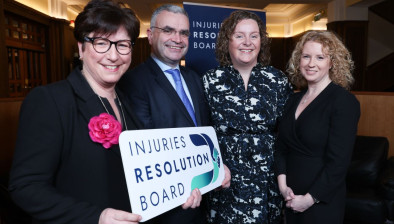Government leaves open possibility of turning PIAB into quasi-judicial body in future

Robert Troy
Plans to transform the Personal Injuries Assessment Board (PIAB) into a quasi-judicial body comparable to the Workplace Relations Commission could be revisited later despite being abandoned by the government on the advice of the Attorney General, a minister has said.
Robert Troy, minister of state in the Department of Justice, yesterday told TDs that it had taken 18 months to bring forward legislation to reform PIAB because he and the Attorney General “were going backward and forwards on this issue”.
The general scheme of the Personal Injuries Resolution Board Bill was published in February. Once enacted, PIAB will be known as the Personal Injuries Resolution Board (PIRB) and will begin to offer mediation as a means of resolving a claim.
James Lawless, a Fianna Fáil backbencher and chair of the Oireachtas justice committee, welcomed the focus on alternative dispute resolution but called on Mr Troy to “re-examine this issue” of making PIAB a quasi-judicial body.
“These kinds of quasi-judicial bodies can operate very well and successfully and relieve the strain on the courts while reducing costs for all,” he said.
Mr Troy said the Attorney General had strongly argued against such a move on the basis that it “might impinge on the constitutional right of access to justice delivered by the courts, as well as the primacy of the courts regarding the administration of justice, particularly in respect of a body of common law”.
He said the Supreme Court decision in Zalewski v Workplace Relations Commission [2021] IESC 24 “provides important context for any consideration of a possible quasi-judicial role for PIAB”.
“While the Supreme Court found the WRC to be administering justice, it also found that this was permissible under Article 37 of the Constitution, given the limits of the subject matter applicable to cases coming before the WRC,” Mr Troy said.
“A similar argument may not be successful regarding PIAB, given that personal injury claims involve broader legal considerations that have been determined by the courts over time, rather than the statutory employment law issues which come before the WRC.”
However, the minister added: “We want to get this legislation enacted this year because we believe it will contribute to bringing down the cost of insurance. Equally, however, I still believe there is an opportunity to go further later.”










